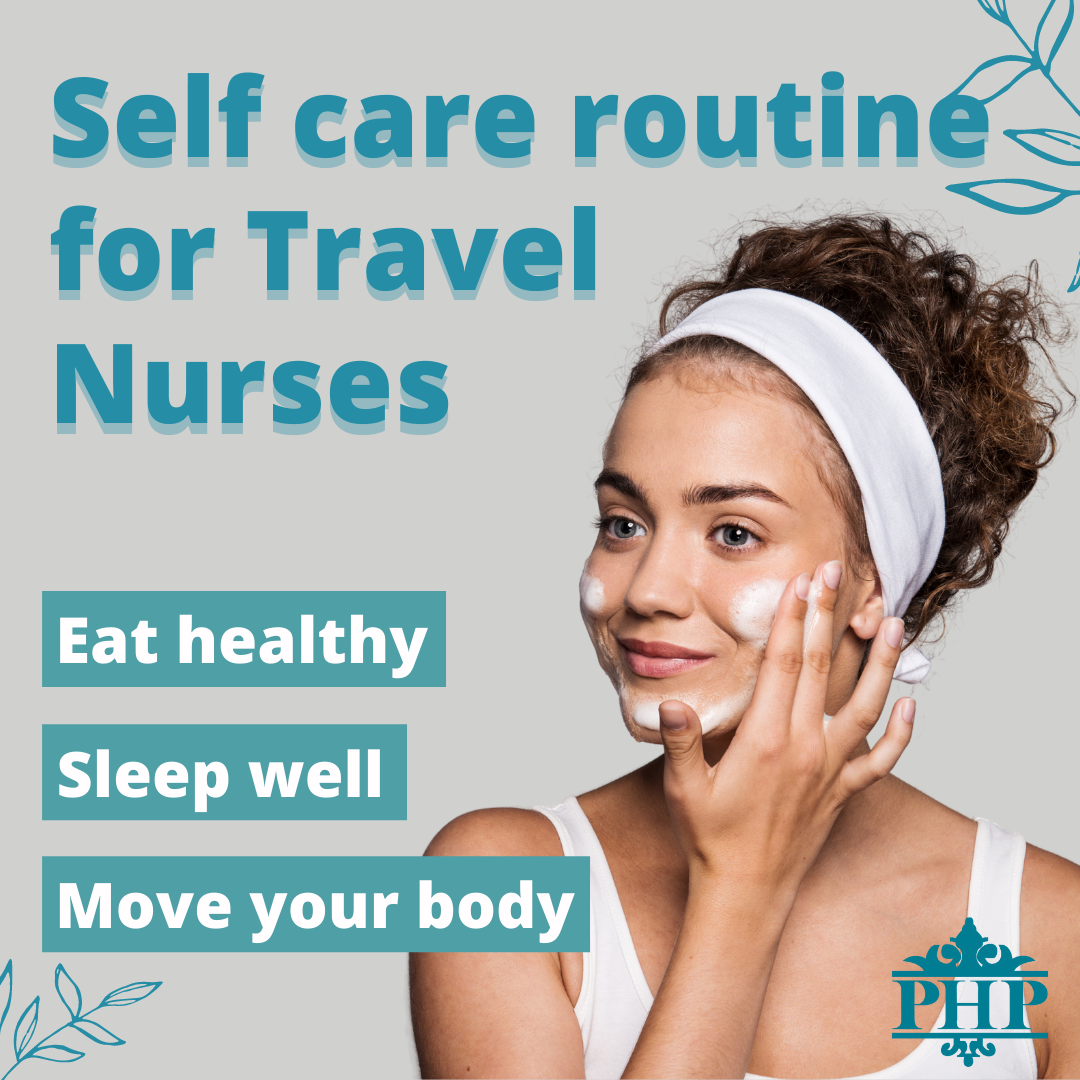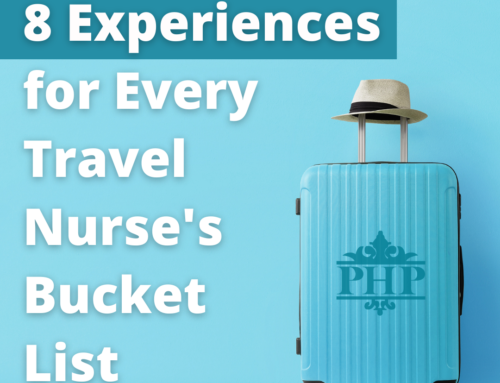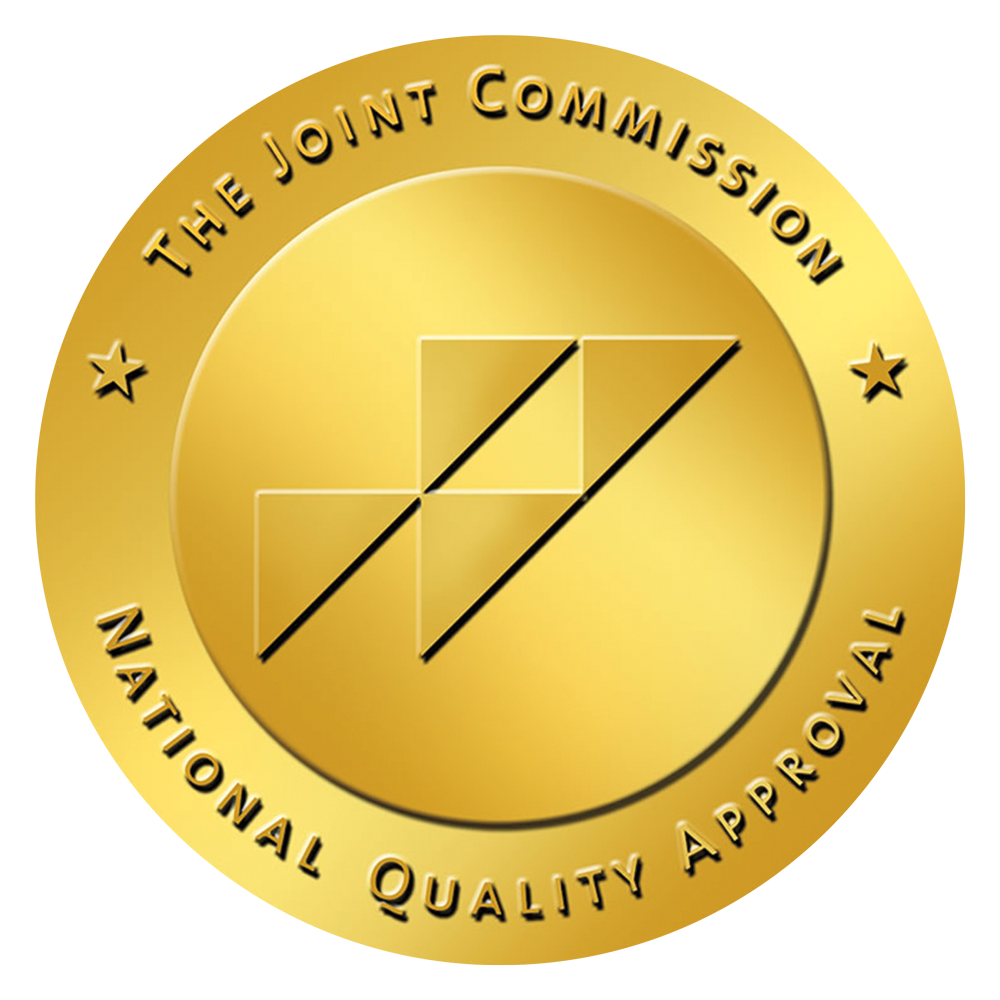Self care is all the rage these days. You can hardly open a magazine or scroll through social media feeds without a blog writer (like this one) fervently insisting that the solution to high stress levels and career burnout is a scented candle and a hot bath (glass of pinot grigio optional).
The truth is that self care is less luxurious than a bubble bath and an overpriced candle. While those activities are nice things that you can do for yourself, they really should complement the foundational acts of self care. These, unfortunately, are rather boring. Genuine self care boils down to three things: food, sleep, and exercise.
That’s fairly straightforward for the average Joe, but asking a Travel Nurse to implement any kind of routine into their lives is just unrealistic. Between traveling to new assignments and working long shifts in busy wards, food and sleep become rare commodities that nurses grab when they can.
So, how does a Travel Nurse establish a self care routine? Our recommendation would be to approach the word “routine” with a lot of flexibility. We don’t mean that you have to do these things at the same time for the same length of time every day; we just mean that you should do them every day (or at least try!).
Food
We won’t lecture you on the significance of a healthy diet. You know already that a varied diet with fresh fruit and veg, protein, and complex carbohydrates is necessary for a healthy body. Still, when your career has you as busy as travel nursing does, there isn’t always time to take a scheduled lunch break, and the usual fare tends to come from the vending machine buffet. Consider meal prepping to ensure that you have both a healthy breakfast and a wholesome lunch that you can tuck into when you get a spare moment between patients. Meal prep can be as easy as making sure that there are leftovers from dinner that you can take to work. Easy peasy!
Sleep
Being a Travel Nurse can make having a regular sleeping pattern a challenge, especially if you are working the night shift. Given how long the working hours of a nurse can be, we recommend simply getting as much sleep as you can on your days off. To ensure that you are getting quality rest, invest in light-blocking curtains or blinds (or simply a good sleeping mask to cover your eyes) to keep out any ambient light. Light will trick your body into thinking that it is still daytime, and it will inhibit the release of melatonin, the sleep hormone. It’s also wise to stay away from bright screens before bedtime for this reason. Set up a consistent bedtime routine to signal to your body that it’s time to wind down. Brew a cup of caffeine-free chamomile tea, play some calming music in the background, and read a book in bed. Remember that, if you have trouble sleeping, help is always available!
Exercise
Exercise is a tough one for almost everyone. It’s difficult to find the time! We recommend approaching exercise with a lot of flexibility – and not the kind associated with yoga. If the thought of an hour-long jog on the treadmill fills you with dread, then opt for something that takes less time and energy. A career in nursing is hardly sedentary, so you should monitor your energy levels carefully. Stick to something more attainable like a 15-30 minute HIIT workout (there are loads available on YouTube) which you can fit in before or after work with ease. Alternatively, if you live close by to your facility, walk to work or rent a bicycle to squeeze some cardio into your day.
Nothing beats a good soak after a long shift, and we are hardly trying to stop you from enjoying the little things that make working in nursing that much more bearable. Bury yourself in scented candles, slather yourself in face masks, indulge in a good series. Still, these acts of self care are only effective if you’ve done the real work of taking care of your primary needs!
We hope that you found this blog article helpful. For more articles on how to navigate the world of travel nursing, check out our blog at this link: https://travelphp.com/news-and-tips/










